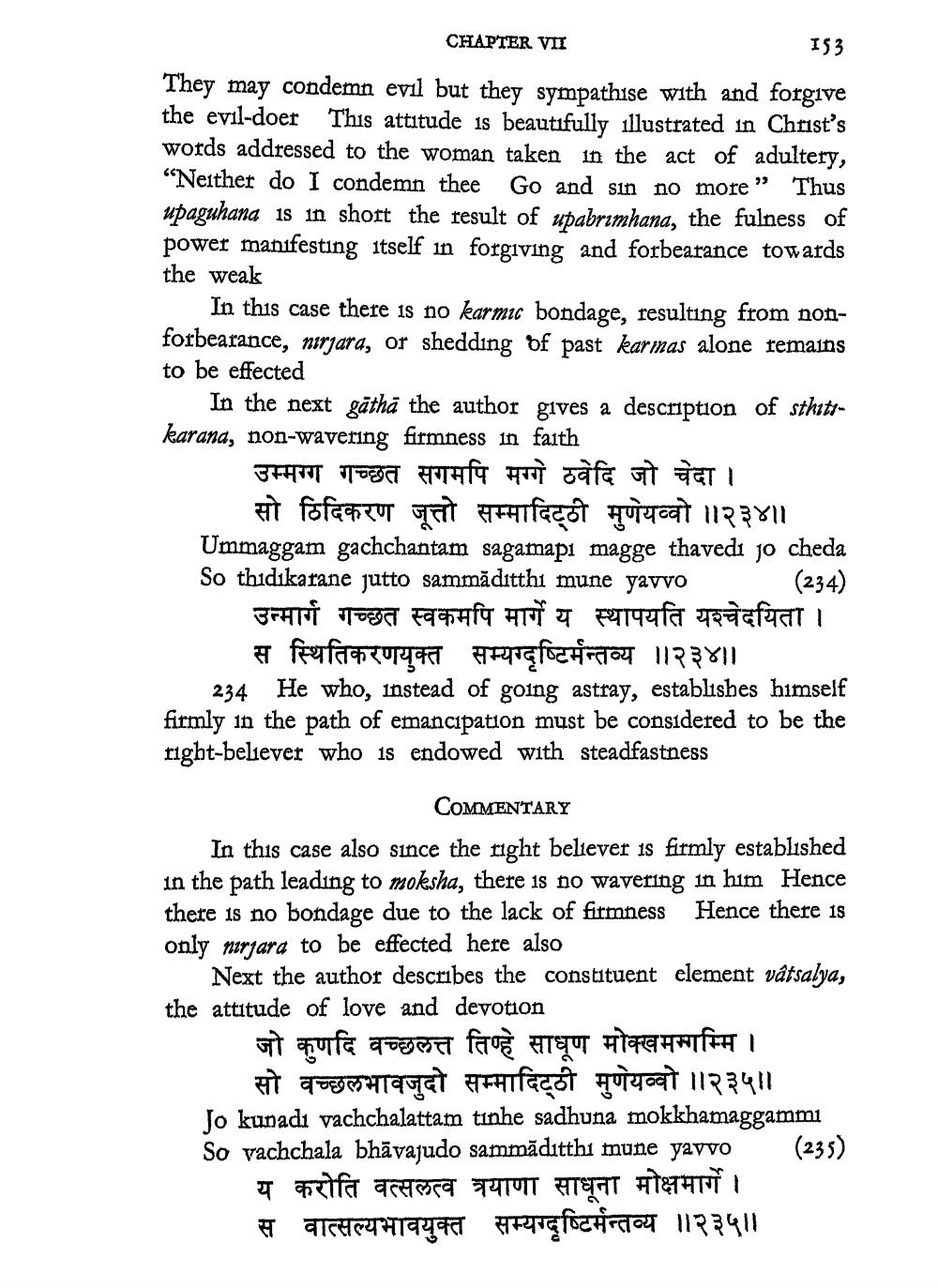________________
CHAPTER VII
153 They may condemn evil but they sympathise with and forgive the evil-doer This attitude is beautifully illustrated in Christ's words addressed to the woman taken in the act of adultery, "Neither do I condemn thee Go and sin no more ” Thus upaguhana is in short the result of upabrımhana, the fulness of power manifesting itself in forgiving and forbearance towards the weak
In this case there is no karmic bondage, resulting from nonforbearance, nirjara, or shedding of past karmas alone remains to be effected
In the next gātha the author gives a description of sthitikarana, non-wavering firmness in faith
उम्मग्ग गच्छत सगमपि मग्गे ठवेदि जो चेदा ।
सो ठिदिकरण जूत्तो सम्मादिट्ठी मुणेयव्वो ॥२३४॥ Ummaggam gachchantam sagamapı magge thavedi jo cheda So thidıkarane jutto sammāditthi mune yavvo (234)
उन्मार्ग गच्छत स्वकमपि मार्गे य स्थापयति यश्चेदयिता।
स स्थितिकरणयक्त सम्यग्दृष्टिमन्तव्य ॥२३४॥ 234 He who, instead of going astray, establishes himself firmly in the path of emancipation must be considered to be the right-believer who is endowed with steadfastness
COMMENTARY In this case also since the right believer is firmly established in the path leading to moksha, there is no wavering in him Hence there is no bondage due to the lack of firmness Hence there is only nirjara to be effected here also
Next the author describes the constituent element vatsalya, the attitude of love and devotion
जो कुणदि वच्छलत्त तिण्हे साधूण मोक्खमम्गम्मि ।
सो वच्छलभावजुदो सम्मादिट्ठी मुणेयव्वो ॥२३५॥ Jo kunadi vachchalattam tinhe sadhuna mokkhamaggammı So vachchala bhāvajudo sammāditthi mune yavvo (235)
य करोति वत्सलत्व त्रयाणा साधूना मोक्षमार्गे। स वात्सल्यभावयुक्त सम्यग्दृष्टिमन्तव्य ॥२३५।।




